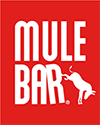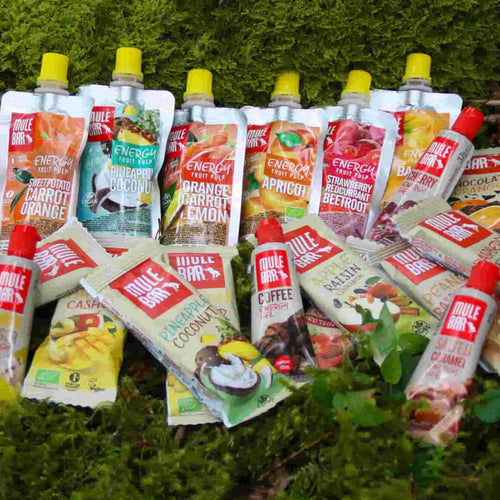Do you know the concept of energy balance? As you know, to live we need energy provided through our diet. This energy is burned by two factors: the minimum expenditure generated by the body to maintain its vital functions AND the expenditure made on a daily basis (sport, climbing stairs, physical work, etc.). We can therefore say that this or that activity burns so many calories. So if your diet provides you with more energy than you expend, you gain weight; if you store less energy than you expend, you lose weight. It is simply the energy balance.
Then, of course, you have to take into account the body's needs in more detail. The energy needed by the body must be carefully chosen to be in shape, or even to optimize performance for some. This means that you don't eat anything just trying to reach a goal of 2000 calories needed for example. The body needs vitamins and minerals, proteins, carbohydrates... Here are some basic concepts to better understand nutrition.
Calories
A man burns an average of 2500 calories per day / an amateur athlete between 2800 and 3000 calories / this can go beyond 3000 calories for professional athletes.
A woman burns an average of 1900 calories per day / an amateur sportswoman between 2200 and 2400 calories / this goes beyond 2500 calories for a professional sportswoman.
These figures vary depending on each person's metabolism and the activity actually performed.
Water
The body is approximately 60% water. And yes, we are constantly told that we need to drink at least 1.5 L of water per day (between 6 and 9 glasses of water), but it is not only in bottles that we find it. The body needs approximately 2 L of water and it also gets its needs from food. Fresh vegetables and fruits are particularly full of it.
Please note that needs vary depending on water expenditure (urine, perspiration, etc.). When you do sports or it's hot, you need to drink more. Elderly people and children are more fragile and require increased monitoring regarding hydration.
In all cases, prefer mineral waters with a low sodium content. Avoid sugary drinks that will make you thirsty instead of hydrating you.
Proteins
According to the French National Agency for Food, Environmental and Occupational Health Safety (ANSES), you should eat 0.8 g/kg of body weight. So between 50 and 60 grams on average for a person of around 65 kg. Depending on each person's physical activities, these needs may increase. You should also know that when you eat 100 g of meat, you ingest around 20 g of protein. Meat also contains lipids and carbohydrates. You will also find animal proteins in dairy products, fish and eggs.
Plant proteins are also essential: soy and tofu are complete plant proteins that are ideal for vegetarians. Cereals (rice, quinoa, etc.) and legumes (lentils, chickpeas, peas, red beans, etc.) are eaten together to make them a source of complete proteins. Alone, they do not replace meat. One of the ingredients richest in protein remains spirulina.
Lipids
In short, it is fat. Often misunderstood, it is nevertheless essential for the proper functioning of our body and for staying healthy. It is obviously necessary to differentiate between good and bad fat. Saturated fatty acids (bad) are found in processed foods such as palm oil. They are used in the food industry and are often a source of bad cholesterol. You will find them in many prepared meals, frozen foods, biscuits, etc. to avoid.
Lipids are also found in many unprocessed foods, they are the richest in omega 3, 6 and 9 to consume daily. This is the good fat. Olives (olive oil), avocado, nuts, almonds…
Lipids should represent around 40% of your daily diet, with maximum emphasis on monounsaturated fats.
Carbohydrates
These are sugars, known as fast sugars and slow sugars. They translate as the source of energy needed by our body, glycogen. But unlike proteins and lipids, the body knows how to make carbohydrates from other nutrients.
To meet the needs of our body, it is better to favor carbohydrates with a low glycemic index because they do not generate large insulin peaks and are better for our health in the long term. So we must eat fruits and vegetables almost at will, they are also full of vitamins and water. But also cereals (whole), rice, buckwheat, quinoa, chestnuts, lentils, beans ...
Carbohydrates to eat in much more moderation without a high glycemic index: biscuits, pasta, bread, etc.
The amount of carbohydrates needed really varies depending on the energy you are burning. This is a way to easily reach your energy balance, but carbohydrates are not essential. For an adult, the recommended daily carbohydrate intake ranges from 225 to 325g. Athletes may need higher carbohydrate intakes to support their performance. The general recommendation is 30g of carbohydrates per hour of exercise, but depending on the intensity some consume up to 90g.
Carbohydrates, and more specifically glycogen, provide energy to the muscles. During your sports activity, you must therefore manage this external supply. The more intense the effort, the more regularly you will need to consume it. This is why there are sports nutrition products on the market in different forms. Energy bars, generally made from cereals and seeds and fruits, are to be consumed before, during or after your session or competition. Energy gels are to be consumed during exercise because they provide an energy boost in a few minutes, just like energy compotes.
Vitamins
13 vitamins are divided into two groups. First, the water-soluble vitamins, which are vitamin C and vitamin B (B1, B2, B3 or PP, B5, B6, B8, B9 and B12). They are found in fruits and vegetables rich in water. They do not have calories and do not provide energy like carbohydrates, for example, but are essential for regulating metabolism. Vitamin C and vitamin B are water-soluble and cannot be stored in tissues. Their effect is therefore short-term.
Then there is the group of fat-soluble vitamins, these are vitamins A, D, E and K. This time they are stored in the body tissues, so we can consume them less regularly than the first category. They are generally found in lipids (fish, eggs, liver, oil, etc.).
Vitamins generally play a role as antioxidants which help fight free radicals.
Minerals
They are found in water because they come from nature and soils. Calcium, magnesium, potassium, phosphorus, sulfur, sodium and chlorine make up the minerals that the body needs to stay healthy. You should consume 100mg per day on average.
Iron, zinc, copper… are trace elements of which traces are found in the body and which we consume in tiny quantities by simply drinking water.
The best way to get these minerals and electrolytes into your body is to consume a hydration drink enriched with vitamins and minerals like Mulebar powdered drink available in red berries and citrus flavors.






Leave a comment
This site is protected by hCaptcha and the hCaptcha Privacy Policy and Terms of Service apply.